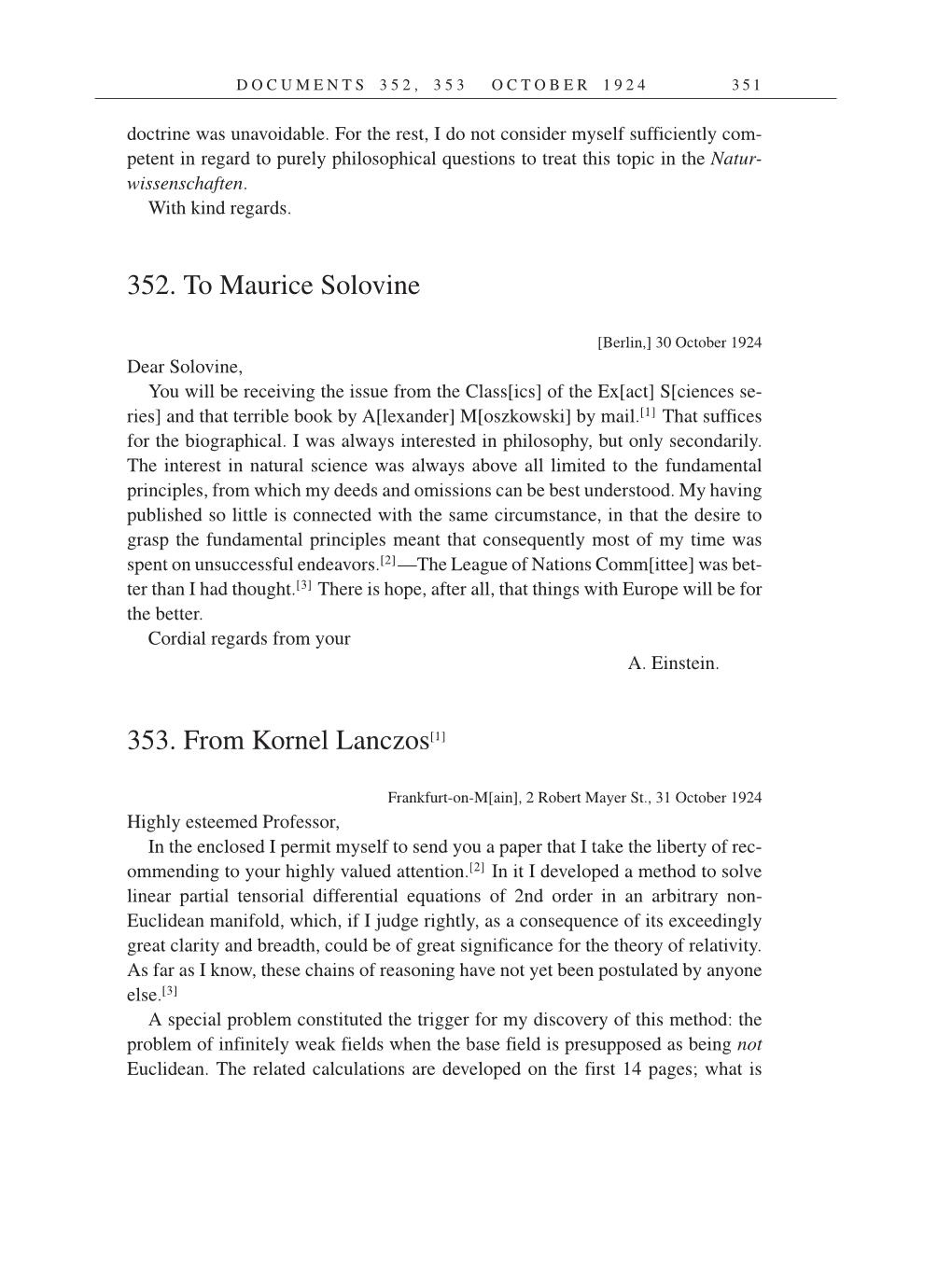D O C U M E N T S 3 5 2 , 3 5 3 O C T O B E R 1 9 2 4 3 5 1
doctrine was unavoidable. For the rest, I do not consider myself sufficiently com-
petent in regard to purely philosophical questions to treat this topic in the Natur-
wissenschaften.
With kind regards.
352. To Maurice Solovine
[Berlin,] 30 October 1924
Dear Solovine,
You will be receiving the issue from the Class[ics] of the Ex[act] S[ciences se-
ries] and that terrible book by A[lexander] M[oszkowski] by
mail.[1]
That suffices
for the biographical. I was always interested in philosophy, but only secondarily.
The interest in natural science was always above all limited to the fundamental
principles, from which my deeds and omissions can be best understood. My having
published so little is connected with the same circumstance, in that the desire to
grasp the fundamental principles meant that consequently most of my time was
spent on unsuccessful
endeavors.[2]
—The League of Nations Comm[ittee] was bet-
ter than I had
thought.[3]
There is hope, after all, that things with Europe will be for
the better.
Cordial regards from your
A. Einstein.
353. From Kornel Lanczos[1]
Frankfurt-on-M[ain], 2 Robert Mayer St., 31 October 1924
Highly esteemed Professor,
In the enclosed I permit myself to send you a paper that I take the liberty of rec-
ommending to your highly valued
attention.[2]
In it I developed a method to solve
linear partial tensorial differential equations of 2nd order in an arbitrary non-
Euclidean manifold, which, if I judge rightly, as a consequence of its exceedingly
great clarity and breadth, could be of great significance for the theory of relativity.
As far as I know, these chains of reasoning have not yet been postulated by anyone
else.[3]
A special problem constituted the trigger for my discovery of this method: the
problem of infinitely weak fields when the base field is presupposed as being not
Euclidean. The related calculations are developed on the first 14 pages; what is
